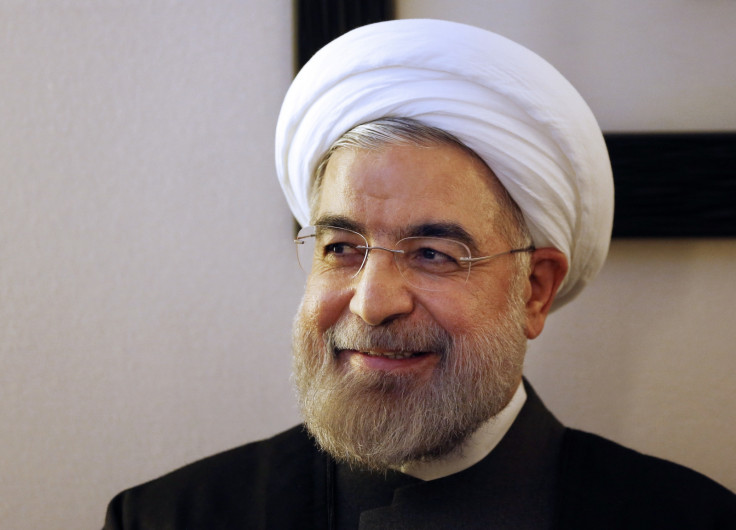Iran's Leaders Fight Over 'Immoral' Mobile Internet
President Rouhani is fighting religious conservatives to expand internet access and stop social media censorship

Iran's President Hassan Rouhani has refuted claims from a prominent cleric that high-speed mobile internet is immoral and un-Islamic, urging religious leaders not to "close the gates to the world".
Introducing 3G internet to Iran would go against "religion, morality and humanity", Ayatollah Naser Makarem Shirazi said in a recent statement.
High-speed mobile internet would serve to expose Iranian people to "negative features", "immoral photos" and "spying", he claimed.
Three companies have been issued 3G licenses in Iran, where only a small number of citizens currently use mobile broadband.
Rouhani, speaking in Tehran, urged Iran's clerics to be more accepting of modern technology, stressing how vital internet access is for the future of young Iranians.
Iranian Internet access battle
"We cannot close the gates of the world to our younger generation," he said.
"If we do not move towards the new generation of mobile today and resist it, we will have to do it tomorrow. If not, the day after tomorrow."
This disagreement is just the latest war of words between Iran's religious conservatives and Rouhani's liberal government over the issue of internet freedom.
Despite nominal bans on Twitter and Facebook, Iran's anti-internet advocates have failed to contain the emergence of social networks, with 4 million of Iranians accessing these sites via proxies, according to culture minister Ali Jannati.
Earlier this summer, against the wishes of Rouhani, the Iranian judiciary also banned Instagram. The president, however, succeeded in vetoing a proposed block of the Whatsapp messaging app.
'Poison of the internet'
The Rouhani administration is exasperated with the attempts of Iran's powerful religious conservatives to ban, block and censor websites and even internet providers.
Last year, the 90 year-old ayatollah Shirazi, along with three other clerics, issued a fatwa against 3G provider RightTel, accusing the company of corruption, and also of enabling Iranians to access pornography.
Another ayatollah, Sadegh Larijani, the head of Iran's judiciary, earlier this year suggested that Rouhani was ignorant of the internet's dangers.
"Those who do not agree with the poison of the internet, do not know cyberspace," he said in response to Rouhani's claims that the internet should be viewed as an opportunity to present "the Iranian and Islamic identity".
© Copyright IBTimes 2024. All rights reserved.





















